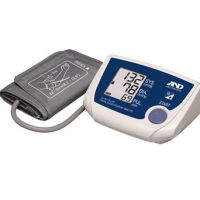According to results from the OPERA-HF study presented at Heart Failure 2015, moderate to severe depression is associated with a 5-fold increased risk of all-cause mortality in patients with heart failure,
The findings show that the mortality risk was independent of comorbidities and severity of heart failure. Patients with no depression had an 80 percent lower risk of mortality.
Depression has been reported to predict death in heart failure patients but it was widely believed that the risk was high because depressed patients had more severe heart failure and comorbidities. However, the OPERA-HF investigated the factors in a more holistic fashion and included social, mental and physical frailty as well as comorbidities and severity of heart failure. Patients were assessed using the Hospital Anxiety and Depression Scale (HADS-D) questionnaire and comorbidity was examined using the Charlson Comorbidity Index (CCI).
The results showed that 103 patients were not depressed (score 0-7), 27 had mild depression (score 8-10) and 24 had moderate to severe depression (score 11-21). At follow-up of 302 days, 27 patients died. Those with moderate to severe depression had a 5-fold increased risk of death compared to those with no or mild depression. Even after controlling for sex, age, hypertension, severity of heart failure and comorbidities, moderate to severe depression continued to remain an important predictor of all-cause mortality.
Professor John Cleland, chief investigator of OPERA-HF and professor of cardiology at Imperial College London and the University of Hull, UK, said: "Our results show that depression is strongly associated with death during the year following discharge from hospital after an admission for the exacerbation of heart failure; we expect that the link persists beyond one year. The association was independent of the severity of heart failure or the presence of comorbidities."
Depression affects approximately 20 to 40 percent of heart failure patients as explained by Prof. Cleland. Since depression is usually related to loss of motivation, loss of interest, loss of confidence, lower quality of life, poor sleep, change in appetite and weight, the association with mortality is understandable. However, Prof. Cleland cautions against immediately prescribing anti-depressants because studies already show that these drugs are ineffective in reducing depression in patients with heart failure. It is better to screen patients and refer them for counselling.
He concluded: "Our research clearly shows a strong association between depression and risk of death in the year after discharge from hospital. Recognition and management of depression may reduce mortality for patients with heart failure. More research is needed to find out what clinicians and patients themselves can do to manage depression. Better treatments for heart failure, co-morbidities as well as depression itself may be required."
Source: European Society of Cardiology
Image Credit: Wikimedia Commons



























